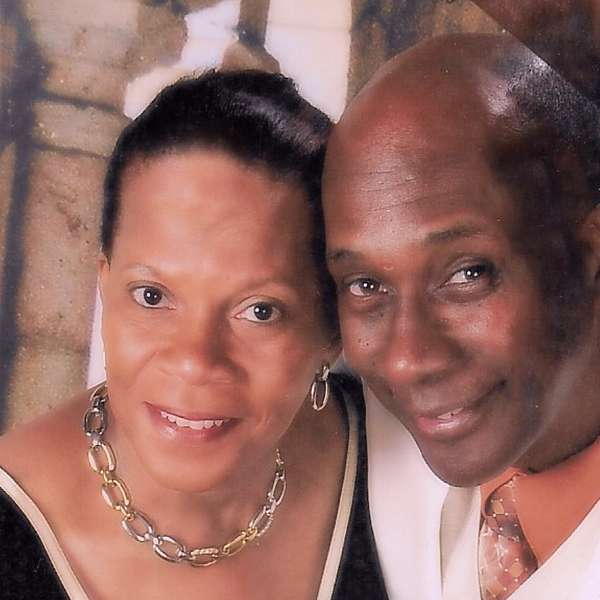
William's Podcast
Profile of Dr. William Anderson Gittens D.D.
Dr. William Anderson Gittens D.D. is a distinguished Barbadian author, speaker, and media arts visionary whose extensive contributions to culture and the arts have left an indelible mark both locally and internationally. Recognized as a fellow of the prestigious Masters International University of Divinity as part of the class of 2024, his academic credentials complement a career rich in creativity and impact.
As the CEO of Devgro Media Arts Services, Dr. Gittens has spearheaded the production of numerous multimedia documentaries and trailers that not only showcase the artistic landscape of Barbados but also highlight pressing social issues. His dedication to storytelling through various media has earned him accolades and recognition, including several international awards and commemorative postage stamps celebrating 60 years of scouting in Barbados.
Dr. Gittens's commitment to the scouting movement is notable; he garnered the 12th International Prestigious Scout Award in 1970, which was presented by Queen Elizabeth II and Governor General Sir Hugh Springer. His passion for nurturing youth through scouting initiatives continues to resonate throughout Barbados.
In addition to his achievements in media arts, Dr. Gittens has authored an impressive 380 books since 2000, focusing on cultural themes that engage global audiences across 195 countries, 10,000 cities, and 4,671 universities. His publications reflect a deep understanding of diverse cultures and continue to inspire readers around the world.
As a featured speaker at significant events, such as The Barbados Police Service's Annual Grand Conference, Dr. Gittens engages in impactful discourse, sharing insights drawn from his vast experience and expertise. His work extends to podcasting, where he has produced 221 episodes available on 24 platforms worldwide, reaching audiences in regions across Africa, Asia, Europe, North America, South America, and Oceania. His podcasts have been translated into Finnish, Spanish, and Ukrainian, further emphasizing their global reach.
Furthermore, Dr. Gittens has served as an Administrative Officer in the Government of Barbados for over three decades, demonstrating a steadfast commitment to public service alongside his creative endeavors. His multifaceted career reflects a blend of administrative expertise and artistic innovation, making him a beacon of inspiration in both the fields of media arts and community service.
In summary, Dr. William Anderson Gittens D.D. stands as a testament to the power of creativity and dedication in fostering cultural appreciation and change, solidifying his place as a prominent figure in Barbadian and global contexts.
William's Podcast
Biblical Critical Theory: Integrating Faith, Justice, and Culture© 2025 ISBN 978-976-97719-1-8
Biblical Critical Theory: Integrating Faith, Justice, and Culture© 2025 ISBN 978-976-97719-1-8
And welcome to our conversation on a subject that combines art and religion, quite the intriguing combination, if I may say so myself. I am your host, Dr. William Anderson Gittens, DD. We are exploring how biblical critical thinking may be incorporated into the field of photojournalism, today as theologians, cultural theorists and photojournalists from the stunning island of Barbados.
It is uncommon to hear about combining these two realms, yet it is a crucial topic, particularly for anyone who have ever pondered how their personal convictions may affect their work life. God is both transcendent and imminent, a concept that contrasts with secular worldviews. Biblical passages like Isaiah 55 9 and Acts 17 28 demonstrate this dual nature of God, emphasising his existence beyond and within the world.
In Christian theology, pursuing knowledge is not just an intellectual exercise, but an act of worship, serving as a foundation for engaging with the external environment. The integration of religion and reasons provides a lens through which individuals can assess and influence culture. Ultimately, the journey of leading a Christian life begins with this understanding of God's transcendence and eminence.
When we talk about applying biblical critical thinking to photojournalism, we are really looking at how scripture informs our understanding of truth and ethics. In many ways, photojournalism already aligns with these values, aiming to show reality, tell the truth, and do so ethically. However, adding a biblical lens pushes us to go a step further in ensuring our work glorifies God.
While journalistic ethics ensure that we remain objective and truthful, biblical principles ask us to also consider factors and more about capturing it in a way that highlights God's truth and humanity. It is about making intentional choices with the stories we tell and the subjects we choose to highlight. For instance, when documenting controversial or sensitive topics, it becomes crucial to focus on the dignity and worth of the individuals involved.
Scripture guides us to speak the truth in love, Ephesians 4.15, New International Version. Ensuring our work fosters understanding and compassion. This approach represents more than abiding by professional standards.
It involves aligning each shot and story with passages such as 1 Corinthians 10.31, doing it all for the glory of God. It requires consideration of the audience's reaction and the potential for positive or negative impact. This does not mean imposing one's beliefs on others.
REFERENCES
Biola
Cultural Factors Influence Academic Achievements© 2024 ISBN978-976-97385-7-7
A_MEMOIR_OF_Dr_William_Anderson_Gittens_D_D_2024_ISBNISBN978_976_97385_0_8
Academic.edu.
Chief of Audio Visual Aids Officer Mr. Michael Owen
Chief of Audio Visual Aids Officer Mr. Selwyn Belle
Commissioner of Police Mr. Orville Durant
Dr. William Anderson Gittens, D.D
En.wikipedia.org/wiki/Lifelong_learning
Hackett Philip Media Resource Development Officer
Holder, B,Anthony Episcopal Priest,
https://brainly.com/question/36353773
https://en.wikipedia.org/wiki/Lifelong_learning#cite_note-19
https://en.wikipedia.org/wiki/Lifelong_learning#cite_note-:2-18
https://independent.academia.edu/WilliamGittens/Books
https://scholar.google.com/scholar?hl=en&as_sdt=0%2C5&q=william+anderson+gittens+barbados&oq=william+anderson+gittens
https://www.academia.edu/123754463/
https://www.buzzsprout.com/429292/episodes.
https://www.youtube.com/@williamandersongittens1714.
Mr.Greene, Rupert